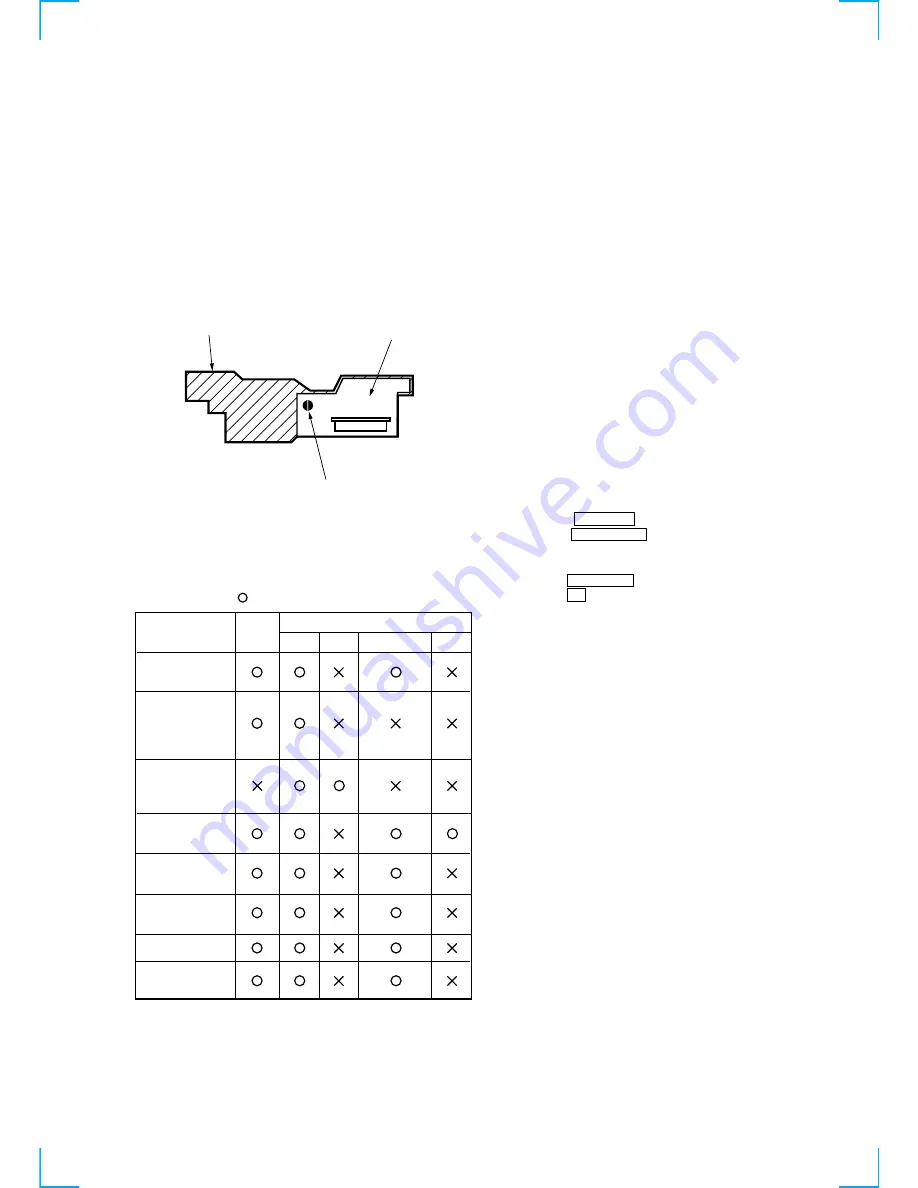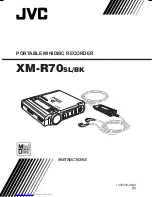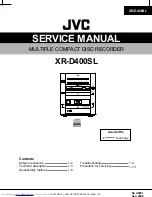
23
5-2. PRECAUTIONS FOR CHECKING LASER DIODE
EMISSINON
To check the emission of the laser diode during adjustments, never
view directly from the top as this may lose your eye-sight.
5-3. PRECAUTIONS FOR USE OF OPTICAL PICK-
UP (KMS-260B)
As the laser diode in the optical pick-up is easily damaged by static
electricity, solder the laser tap of the flexible board when using it.
Before disconnecting the connector, desolder first. Before connect-
ing the connector, be careful not to remove the solder. Also take
adequate measures to prevent damage by static electricity. Handle
the flexible board with care as it breaks easily.
Optical pick-up flexible board
5-4. PRECAUTIONS FOR ADJUSTMENTS
1) When replacing the following parts, perform the adjustments
and checks with in the order shown in the following table.
Optical
Pick-up
BD Board
IC101, IC121
D101
IC171
pick-up
flexible board
laser tap
1. Initial setting of
adjustment value
2. Recording of IOP
information
(Value written in
the pick-up)
3. Temperature
compensation
offset adjustment
4. Laser power
adjustment
5. Traverse
adjustment
6. Focus bias
adjustment
7. Error rate check
8. Auto gain output
level adjustment
IC192
2) Set the test mode when performing adjustments.
After completing the adjustments, exit the test mode.
Perform the adjustments and checks in “group S” of the test mode.
3) Perform the adjustments to be needed in the order shown.
4) Use the following tools and measuring devices.
• Check Disc (MD) TDYS-1
(Parts No. 4-963-646-01)
• Test Disk (MDW-74/AGA-1) (Parts No. 4-229-747-01)
• Laser power meter LPM-8001 (Parts No. J-2501-046-A)
or
MD Laser power meter 8010S (Parts No. J-2501-145-A)
• Oscilloscope (Measure after performing CAL of prove.)
• Digital voltmeter
• Thermometer
• Jig for checking BD board waveform
(Parts No. : J-2501-149-A)
5) When observing several signals on the oscilloscope, etc.,
make sure that VC and ground do not connect inside the oscillo-
scope.
(VC and ground will become short-circuited.)
6) Using the above jig enables the waveform to be checked without
the need to solder.
(Refer to Servicing Note on page 6.)
7) As the disc used will affect the adjustment results, make sure
that no dusts nor fingerprints are attached to it.
5-5. CREATING CONTINUOUSLY RECORDED DISC
* This disc is used in focus bias adjustment and error rate check.
The following describes how to create a continuous recording disc.
1. Insert a disc (blank disc) commercially available.
2. Rotate the
l L
knob and display “MD CREC MODE”.
3. Press the ENTER/YES button again to display “MD CREC
MID”. Display “MD CREC (0300)” and start to recording.
4. Complete recording within 5 minutes.
5. Press the MENU/NO button and stop recording .
6. Press the
A
button and remove the disc.
The above has been how to create a continuous recorded data for
the focus bias adjustment and error rate check.
Note :
• Be careful not to apply vibration during continuous recording.
















































